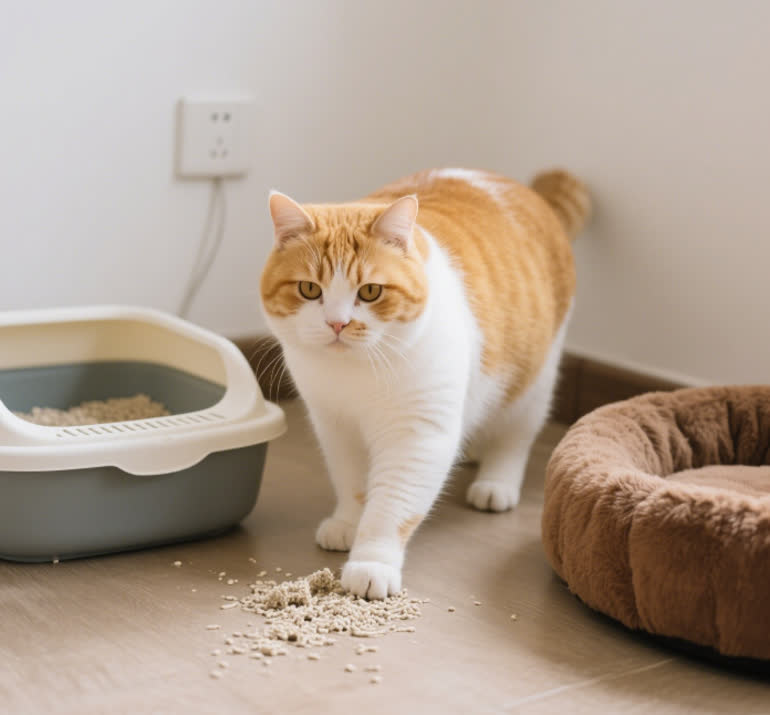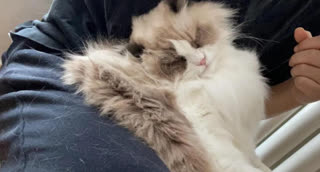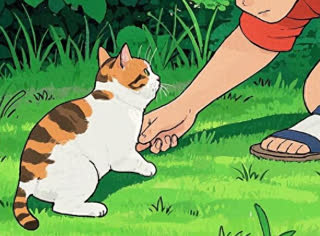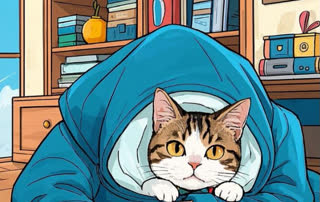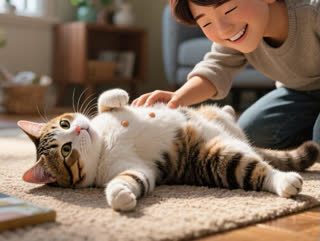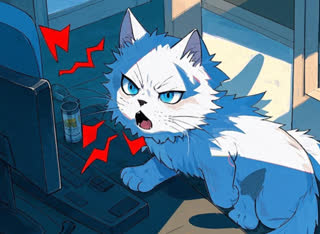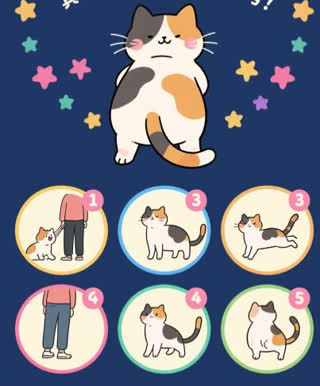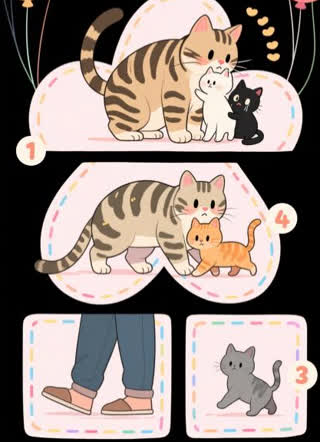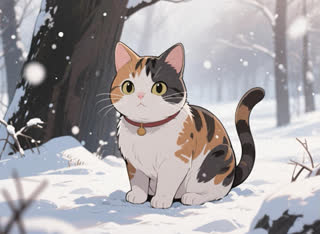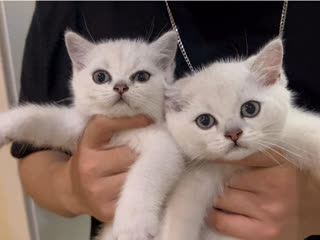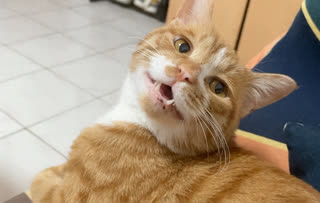Understanding Dry Cat PoopBefore we jump into solutions, let's first understand what dry cat poop looks like and what might be causing it.
What Does Dry Cat Poop Look Like?
Common Causes of Dry Cat Poop
Dehydration: Cats are notorious for not drinking enough water. Dehydration can lead to dry, hard stools as the body tries to conserve water by absorbing more from the feces. This is especially common if your cat only eats dry food, which has a low moisture content.
Diet: A diet that is low in fiber or high in processed ingredients can contribute to dry poop. Cats need a balanced diet that includes enough fiber to keep their digestive system healthy. Additionally, sudden changes in diet can also upset your cat's digestive system and lead to dry stool.
Medical Conditions: Certain medical conditions can cause dry cat poop. These include constipation, hyperthyroidism, kidney disease, and gastrointestinal blockages. If you notice other symptoms along with dry poop, such as weight loss, increased thirst, or vomiting, it's important to consult your veterinarian as soon as possible.
Lack of Exercise: Cats that are sedentary may have slower digestive systems, which can lead to dry poop. Exercise helps stimulate the digestive tract and keeps things moving smoothly.
Solutions for Dry Cat Poop
Increase Water Intake
Provide Fresh Water: Make sure your cat always has access to clean, fresh water. Change the water daily and clean the water bowl regularly to prevent the growth of bacteria.
Use a Water Fountain: Many cats are attracted to running water. A water fountain can encourage your cat to drink more by providing a continuous flow of fresh water. The movement and sound of the water can be enticing to your feline friend.
Add Water to Food: If your cat is a picky drinker, you can add some water to their food. This is especially beneficial if you feed your cat dry food. You can also try feeding your cat wet food, which has a much higher moisture content than dry kibble. Wet food can help increase your cat's overall water intake and soften their stools.
Offer Broth: Another way to increase your cat's water intake is to offer them unsalted chicken or fish broth. Make sure the broth is free of onions, garlic, and other ingredients that are toxic to cats. You can give your cat a small amount of broth as a treat or mix it with their food.
Adjust the Diet
Choose High - Quality Cat Food: Look for cat food that is made with high - quality ingredients and has a good balance of protein, fat, and fiber. Avoid cat food that contains a lot of fillers, artificial colors, and preservatives.
Increase Fiber Intake: Fiber helps add bulk to the stool and promotes regular bowel movements. You can add fiber to your cat's diet by feeding them high - fiber cat food or by adding a small amount of fiber supplement. Some good sources of fiber for cats include pumpkin, psyllium husk, and green beans. However, it's important to introduce fiber gradually to avoid digestive upset.
Switch to Wet Food: As mentioned earlier, wet food is a great way to increase your cat's moisture intake. It also tends to be more digestible than dry food. You can gradually transition your cat from dry food to wet food by mixing the two together and gradually increasing the amount of wet food over time.
Limit Treats: While treats are a great way to bond with your cat, too many treats can disrupt their diet and lead to digestive problems. Make sure to limit the number of treats you give your cat and choose treats that are healthy and nutritious.
Encourage Exercise
Play with Your Cat: Spend some time each day playing with your cat using toys such as feather wands, laser pointers, or catnip - filled balls. This not only provides exercise but also helps strengthen the bond between you and your cat.
Provide Scratching Posts and Climbing Structures: Cats love to climb and scratch. Providing scratching posts and climbing structures in your home can encourage your cat to be more active. You can also place toys on top of these structures to entice your cat to climb and play.
Create an Enriching Environment: Make your home a stimulating environment for your cat. This can include providing hiding places, perches, and puzzle toys. An enriched environment will encourage your cat to explore and be more active.
Consider Supplements
Probiotics: Probiotics are beneficial bacteria that can help improve your cat's digestive health. They can help regulate the gut flora, improve digestion, and soften the stool. You can find probiotic supplements specifically formulated for cats at your local pet store or online.
Fiber Supplements: As mentioned earlier, fiber supplements can be a great way to add more fiber to your cat's diet. However, it's important to follow the dosage instructions carefully and introduce the supplement gradually to avoid digestive upset.
Omega - 3 Fatty Acids: Omega - 3 fatty acids have anti - inflammatory properties and can help improve your cat's overall health, including their digestive health. You can find omega - 3 fatty acid supplements in the form of fish oil or krill oil. However, it's important to choose a supplement that is specifically formulated for cats and to follow the dosage instructions carefully.
When to See a Veterinarian
Prevention of Dry Cat Poop
Regular Vet Check - Ups: Make sure to take your cat for regular check - ups with your veterinarian. Your veterinarian can monitor your cat's health, detect any potential problems early, and provide advice on diet, exercise, and other aspects of cat care.
Balanced Diet: Feed your cat a balanced diet that is appropriate for their age, breed, and health condition. Make sure to provide enough fiber and moisture in their diet to keep their digestive system healthy.
Adequate Water Intake: Ensure that your cat always has access to clean, fresh water. Encourage your cat to drink more water by using a water fountain, adding water to their food, or offering broth.
Exercise and Enrichment: Provide your cat with plenty of opportunities for exercise and mental stimulation. This can help keep their digestive system healthy and prevent dry poop.
